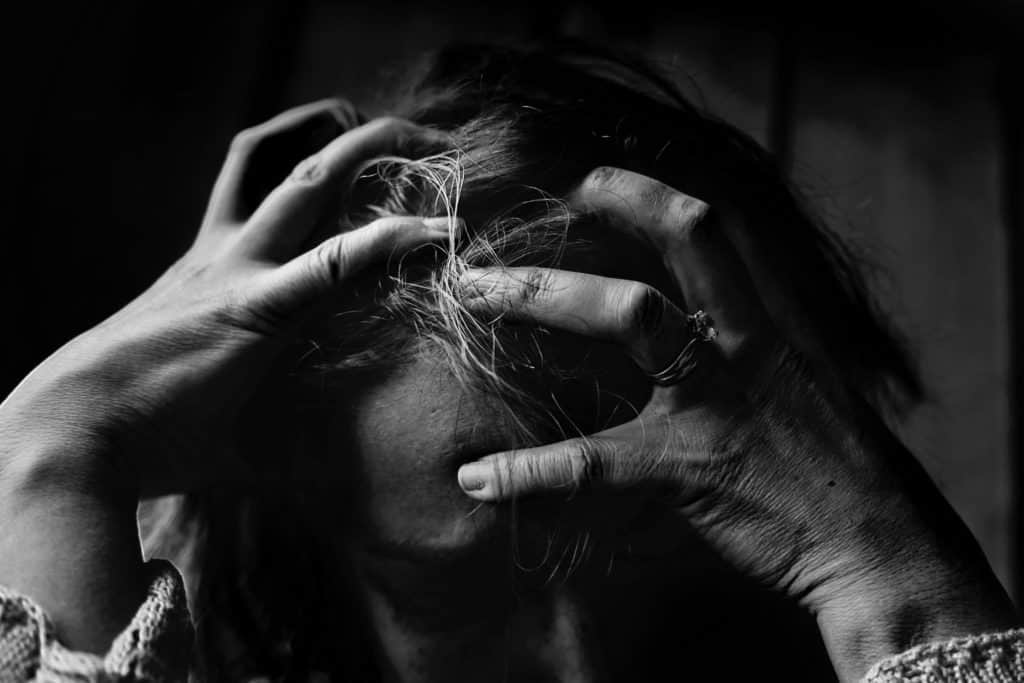If you or someone you love is stuck in the harmful cycle of alcohol addiction, you may feel at a loss when it comes to determining the best action to take. This can be especially true for individuals living with co-occurring disorders or a dual diagnosis. Fortunately, effective and highly individualized treatment is attainable in the St.Louis area. Read on to learn more about the connection between alcohol addiction and mental illness and how you can get started working towards well-being today.
Disorders Commonly Associated With Alcoholism
A co-occurring disorder, also known as dual diagnosis, refers to the presence of both a substance use disorder and mental illness. There are two main reasons for this: mental illness causes of alcoholism and alcohol addiction can permanently disrupt chemicals in the brain which results in mental illness. For example, alcoholic personality disorder, also known as borderline personality disorder and drinking often accompany each other, as well as chronic depression, bipolar disorder, and anxiety disorders. The mental illness may be diagnosed first and the sufferer uses alcohol consumption as a means of coping or self-medicating. Fortunately, treatment approaches that are designed to address mental illness and addiction simultaneously are available.
Some of the disorders that are commonly seen with alcoholism include:
- Depression
- PTSD
- OCD
- Bipolar Disorder
- Anxiety
Clinical depression is a mood disorder that affects the way people feel and behave. Many individuals who suffer from depression experience recurring feelings of sadness and unhealthy thoughts, including suicidal ideation. Some frequently feel lonely and isolated. Post-traumatic stress disorder (PTSD) is a mental health disorder that affects those who have gone through a traumatic experience. People who have PTSD often experience flashbacks and nightmares, causing them to relive the traumatic events.
Obsessive-compulsive disorder, also known as OCD, is a mental health disorder that causes individuals to have unhealthy, obsessive behaviors. For example, a person who has OCD may obsess over the fear of getting sick. As a result, the individual may bathe or wash his or her hands more frequently than most people. The person might excessively clean and disinfect surfaces in the house in order to avoid contact with germs.
Bipolar disorder causes individuals to have mood swings, shifting from depressive states to manic states of being. Finally, anxiety is a disorder that impacts the way people feel, creating an unhealthy nervousness and even fear of various things, including social settings (social anxiety).
These disorders often become overwhelming for those who suffer from them. It can be hard for individuals to deal with the effects of these disorders on a daily basis. Unfortunately, in an attempt to escape from the symptoms of depression, anxiety, or any of the other disorders mentioned, people self-medicate. They may use alcohol in order to “relax” or “unwind”. But, this dependence on alcohol can lead to alcoholism, an addiction to alcohol.
Is Alcoholism a Disease?
For years, medical professionals have worked to solve the problem of classifying alcoholism and other types of addiction. Medical science has dedicated time and research in search of the answer to a very common question: is alcoholism a disease? Many years ago, substance abuse was thought to be a choice, an effect of poor characteristics and personality. Individuals have long believed that alcoholism is the result of a person’s unhealthy choices.
But, this belief implies that those who are dealing with substance use problems can end the issues by simply choosing to do so. In other words, if people only suffer from alcohol addictions because they choose to continue alcohol use, then they can also stop addiction in their lives by choosing to stop using alcohol.
It’s true that choice does play a part in the initial use of alcohol. Also, individuals usually go through treatment as a result of a choice to get help. But, alcoholism, and any other type of addiction for that matter, is much more complex than what many people have believed it to be. Those who suffer from alcohol dependence and addiction suffer from something much deeper than the “consequences of their choice”. And medical science has worked to make sure the general public understands this truth.
So, is alcohol addiction truly a disease? Is alcoholism a mental illness? Simply put, yes. Addiction develops as a result of the body’s dependence on a substance. When a person drinks frequently, it’s likely that his or her body will grow to depend on the effects of alcohol. In many cases, people who drink excessively do so because their bodies simply won’t allow them to feel normal if they don’t use alcohol. After it gets used to a certain substance, the body experiences withdrawal if it doesn’t have that substance in its system. So, those who use alcohol regularly eventually develop an addiction to drinking and find it hard to end alcohol use without professional help.
Many people find it hard to classify addiction as a disease or mental illness because it simply doesn’t seem like a type of sickness. Individuals find it hard to believe that alcoholism needs to be handled or viewed as an illness, such as cancer, diabetes, post-traumatic stress disorder, or schizophrenia. But, the truth of the matter is that addiction problems are diseases of the brain, affecting people’s cognitive processes and brain functions. This, needless to say, is very serious and should be considered as such.
How Does Dual Diagnosis Treatment Work?
Dual diagnosis rehabilitation provides in-depth mental health services on-site in addition to recovery support. Some of the most popular therapies used for alcoholism and mental illness include the following:
- Cognitive behavioral therapy (CBT)
- Individual counseling
- Group therapy
- Dialectical behavior therapy (DBT)
Each type of therapy focuses on different aspects of the healing process. Individual counseling, a type of one-on-one therapy, provides a safe space for clients to discuss anything that is on their mind with a compassionate counselor. It is an excellent tool for learning how to work through challenging situations such as cravings in a healthy manner. CBT on the other hand centers around identifying and ultimately replacing self-destructive behavioral patterns with new ones. Individuals who have a dual diagnosis often benefit from this option especially because it can equip them with new coping skills and end the vicious cycle of self-medicating with alcohol.
Group therapy and general group-based activities are offered in both outpatient and inpatient rehabilitation programs because they help clients socialize with others in recovery and develop a support system. Group therapy also shows you that you are not alone on your journey to lifelong sobriety and wellness. During group sessions, a counselor may utilize trust building activities or simply encourage members to share their experiences based on relevant topics.
At Northbound, we are proud to provide individualized addiction treatment services to the St. Louis region. Whether you are ready to find the right program for your needs or have questions about the treatment process, our team of addiction specialists is ready to assist you. Just contact us today!
Author
-

President, CEO & Founder at Northbound Treatment Network
Paul Alexander is the CEO, President & Founder of Northbound Treatment Network in Newport Beach, California. He believes wholeheartedly in transformational leadership, organizational health and effective, fully integrated substance use disorder and mental health treatment. With over 27 years of experience in behavioral healthcare, Paul has extensive knowledge of “in vivo” treatment modalities, clinical development, operations, strategy, marketing and financial planning. He has been widely recognized for his development of collegiate-based residential treatment programs for students in recovery and authored a research study at The University of California confirming this modality’s effectiveness.
Paul’s comprehensive professional experience, willingness to innovate, and emphasis on organizational health are vital factors in Northbound’s continued success. Paul received his Certified Addiction Treatment Specialist training at Saddleback College in Mission Viejo, CA, and was awarded Outstanding Alumni Service Award in 2002. Paul holds a Bachelor of Arts degree in Criminology, Law and Society, Summa Cum Laude, from University of California, Irvine, and a Juris Doctorate degree from Loyola Law School of Los Angeles. Paul currently serves on The National Association of Addiction Treatment Providers (NAATP) board. In addition, he serves on The Family Recovery Foundation board and The CarePossible board in Orange County; both organizations are committed to raising funds for family recovery and treatment for former military personnel. Paul is in recovery himself and lives in Orange County with his wife Silvana and his two young sons, Noah and Dean.










